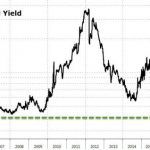
1) Korea’s Financial Services Commission will introduce a so-called “omnibus account” for foreigners investing in local stocks
2) Malaysian Attorney General Apandi Ali closed the investigation into transfers of foreign money into Prime Minister Najib Razak’s personal bank accounts
3) The South African Reserve Bank increased the pace of its tightening
4) The Egyptian central bank eased restrictions on dollar cash deposits
5) The Turkish central bank raised its 2016 and 2107 inflation forecasts after the minimum wage was hiked 30%
6) Brazil’s COPOM minutes confirmed a dovish shift
7) Banco de Mexico extended its dollar auction program through March 31
In the EM equity space, UAE (+7.8%), the Philippines (+7.7%), and Turkey (+4.4%) have outperformed this week, while China (-5.4%), Korea (+1.7%), and India (+1.8%) have underperformed. To put this in better context, MSCI EM rose 3.9% this week while MSCI DM rose 0.8%.
In the EM local currency bond space, Brazil (10-year yield -58 bp), South Africa (-37 bp), and Turkey (-23 bp) have outperformed this week, while Hungary (10-year yield +18 bp), Poland (+7 bp), and Ukraine (+6 bp) have underperformed. To put this in better context, the 10-year UST yield fell -10 bp this week.
In the EM FX space, RUB (+3.7% vs. USD), MYR (+3.5% vs. USD), and ZAR (+3.3% vs. USD) have outperformed this week, while ARS (-1.3% vs. USD), PEN (-0.6% vs. USD), and INR (-0.2% vs. USD) have underperformed.
1) Korea’s Financial Services Commission will introduce a so-called “omnibus account” for foreigners investing in local stocks. This would end the current (unpopular) rule that requires foreign investors maintain a separate account for each of their funds. The move is reportedly being made to help Korea get included in MSCI’s Developed Market indices.
2) Malaysian Attorney General Apandi Ali closed the investigation into transfers of foreign money into Prime Minister Najib Razak’s personal bank accounts. Ali said no laws had been broken. Apandi Ali was appointed by Najib last year, after the previous Attorney General resigned. Elsewhere, the government trimmed its 2016 growth forecast to 4-4.5% from 5% previously but stuck to its budget deficit forecast of -3.1% of GDP. It also cut the mandatory employee contribution rates to the national pension fund by 3 percentage points, which should boost consumption.














Leave A Comment